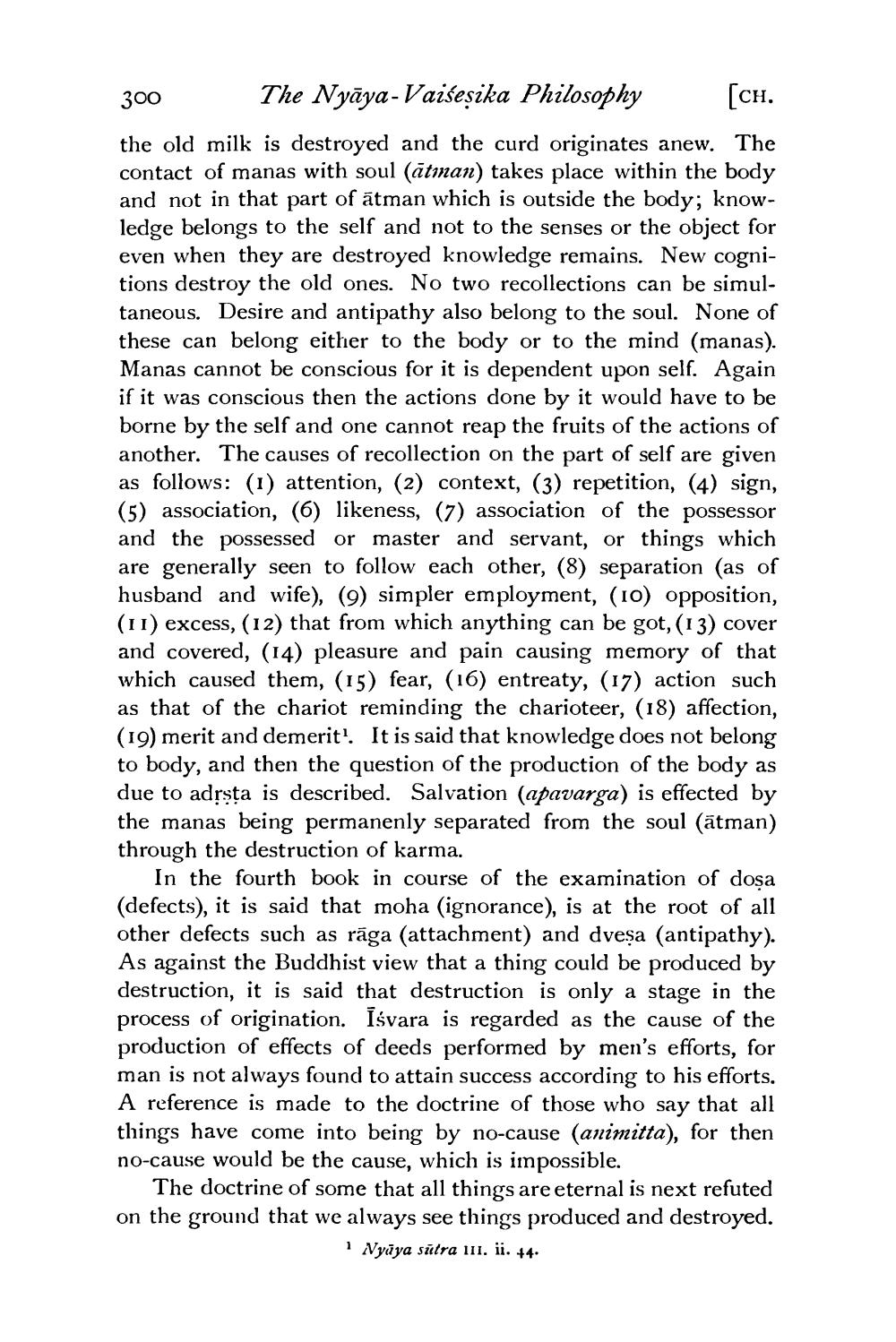________________
300
The Nyāya-Vaiseșika Philosophy
[CH.
the old milk is destroyed and the curd originates anew. The contact of manas with soul (ātman) takes place within the body and not in that part of ātman which is outside the body; knowledge belongs to the self and not to the senses or the object for even when they are destroyed knowledge remains. New cognitions destroy the old ones. No two recollections can be simultaneous. Desire and antipathy also belong to the soul. None of these can belong either to the body or to the mind (manas). Manas cannot be conscious for it is dependent upon self. Again if it was conscious then the actions done by it would have to be borne by the self and one cannot reap the fruits of the actions of another. The causes of recollection on the part of self are given as follows: (1) attention, (2) context, (3) repetition, (4) sign, (5) association, (6) likeness, (7) association of the possessor and the possessed or master and servant, or things which are generally seen to follow each other, (8) separation (as of husband and wife), (9) simpler employment, (10) opposition, (11) excess, (12) that from which anything can be got,(13) cover and covered, (14) pleasure and pain causing memory of that which caused them, (15) fear, (16) entreaty, (17) action such as that of the chariot reminding the charioteer, (18) affection, (19) merit and demerit'. It is said that knowledge does not belong to body, and then the question of the production of the body as due to aděsta is described. Salvation (apavarga) is effected by the manas being permanenly separated from the soul (ātman) through the destruction of karma.
In the fourth book in course of the examination of dosa (defects), it is said that moha (ignorance), is at the root of all other defects such as rāga (attachment) and dvesa (antipathy). As against the Buddhist view that a thing could be produced by destruction, it is said that destruction is only a stage in the process of origination. Iśvara is regarded as the cause of the production of effects of deeds performed by men's efforts, for man is not always found to attain success according to his efforts. A reference is made to the doctrine of those who say that all things have come into being by no-cause (animitta), for then no-cause would be the cause, which is impossible.
The doctrine of some that all things are eternal is next refuted on the ground that we always see things produced and destroyed.
Nyāya sūtra 111. ii. +4.




